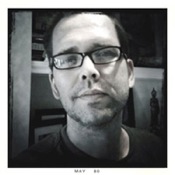The Luster of Lack.
With all due respect to René Descartes, I think a more accurate characterization of the modern human condition is not his famous, “I think therefore I am,” but rather “I lack therefore I am.”
Who we are, or who we think we are, has become inextricably linked to the things we buy and the brands we affiliate with as what we project outward into society is reflected back to us as a form of self validation. This is how we really know who we are.
We’ve become a society obsessed with stuff. We buy stuff, we buy more stuff and then when we run out of room for the stuff we have, we rent space so we can store the extra stuff. As a result, Self Storage has become one of the fastest growing industries in the United States.
What’s at the core of this accumulation craze?
How about dukkha? When the Buddha so powerfully shared his Four Noble Truths with the world he was well aware of the profound impact suffering had upon humanity. However, if we expand our definition of dukkha just a bit, we find that it can also mean dissatisfaction and according to David Loy, it also means lack.
I first came across Loy’s definition in Michael Stone’s book Yoga For A World Out of Balance in which Stone observes that “the negative aspect of feeling lack is the drive to fill this emptiness with egoistic ambitions like romantic love or the accumulation of money.” Or, more expansively, the accumulation of lots of stuff.
However, as things inevitably decay and lose their luster, we find ourselves stuck in an endless cycle of attainment in hopes of quenching the thirst that rages within. This is the central driver of our consumer-centric culture. When combined with the powerful pull of branding and advertising and it’s no wonder we find ourselves in our current predicament.
Sadly, no amount of material accumulation will ever quench this thirst. We’re fighting an unwinnable battle. The Buddha knew that to find our way out of suffering we need to first understand what causes it. With regard to our discussion, the clear cause is the frantic consumption of brands. What about our society isn’t geared toward consumption? Think advertising, ubiquitous brand messaging, product placement, shopping, social and style trends, it’s all part of the machine that primes us to buy more of the goods that will help us feel whole and define who we are.
So what do we do about it? How do we find the path that leads us out of lack?
There is no easy answer. But, I do find tremendous hope in the trend where a growing number of young professionals are deciding to eschew the pursuit of wealth and career in the interest of following their passions and the desire to good. I find myself in this very boat and have found the shift in perspective liberating.
As I have cultivated my practice as both a yoga practitioner and a Buddhist, I find that what was once important to me (the car I drive, the brands I buy, etc.) no longer carry the same importance.
I know I’m not alone. There are others who think like I do, who want to make a difference, to be less materialistic and ever more mindful.
Who knows, perhaps less will be the new more and our collective lack will be transmuted into something far more meaningful?
Coe Douglas is a recovering ad agency creative director. He currently works as a freelance writer, brand strategist and occasional music video director. Whenever possible he tries to use his creative powers for good. As a vegetarian, a Buddhist and a yoga teacher, Coe spends a surprising amount of time explaining to people why he doesn’t simply just eat burgers, watch reality shows and begrudgingly go to church like everyone else. This fall he’ll be returning to school to immerse himself in books and journals with the intention of emerging after a few years with a graduate degree in psychology. Coe blogs and lives online at coedouglas.com.






Read 1 comment and reply